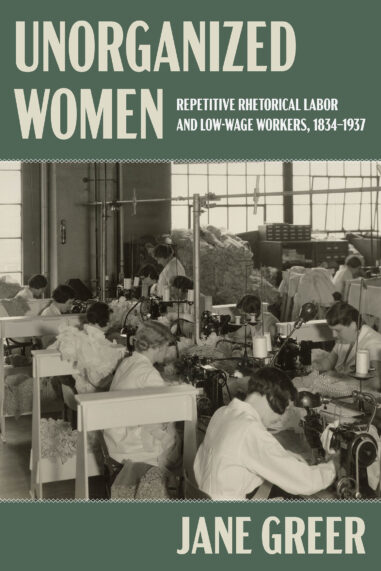
Hardcover $60.00
Request Exam or Desk Copy. Request Review Copy
Unorganized Women
Repetitive Rhetorical Labor and Low-Wage Workers, 1834-1937
Unorganized Women makes highly original contributions to scholarly conversations in the field. Historians and theorists of rhetoric—even those interested in women’s rhetorics and working-class rhetorics—have rarely turned their attention to the rhetorical labors of low-wage women, and I know of no other scholarship in rhetoric that expressly seeks to synthesize or juxtapose the rhetorical practices of varied groups of nonunion laborers.

